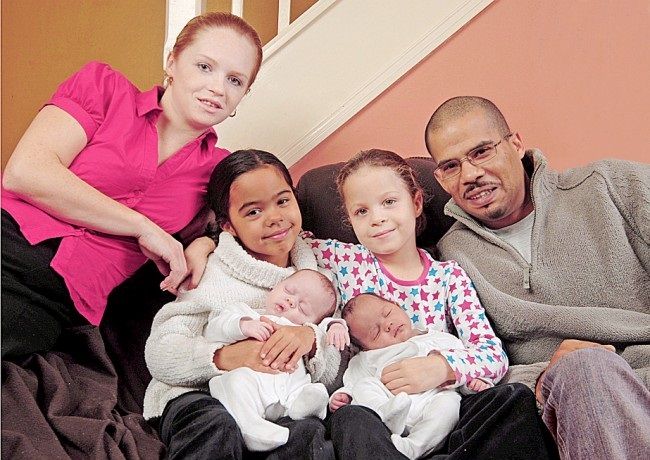‘I Get Judged Because My Kids Sleep Over At Their Grandparents Once A Week’
According to a national study conducted by the C.S. Mott Children’s Hospital, approximately two-thirds of moms face criticism for their parenting choices. Caitlin Fladager is no stranger to judgmental individuals as a mother. She is chastised for her children enjoying an overnight at their grandparents once a week, of all the parenting mistakes she has made. So she wrote an emotional message on Facebook, asking, “Can we stop condemning parents for taking time away from their children to spend valuable time with their grandparents?”
“I’m not sure when having a nice, close relationship with one’s grandparents become so un-normalized,” Fladager wrote.
“When I tell people my kids have a sleepover with their grandparents once a week, they practically fall over and always shame me.” ‘I could never allow someone else babysit my kids on a weekly basis!’ They say that all the time. They are not being ‘watched,’ but rather enjoying quality time with their grandparents and father.”
Grandparents are not able to be there in every child’s life. However, those that do, such as Fladager, value their relationship with them. “Raising a child takes a village, and I am eternally thankful for mine.”
Similarly, grandparents frequently savor every time spent with their grandchildren. “My parents look forward to seeing my children once a week and have planned a variety of fun activities for them to do.” My kids are also looking forward to the day when they will be able to spend the entire day with their grandparents, and they are always asking when they will be able to see Papa and Grandma again.”
‘Dumping the kids off at the grandparents,’ as Fladager puts it, is a patronizing expression. It’s a cruel and inaccurate portrayal of the sleepover situation. “Stop condemning mothers whose children have a strong bond with their grandparents. Stop thinking, “Oh wow, they simply dump their kids on their parents.” We are a unit. We assist one another. We look after each other. There is no one being dumped on.”
“It’ll be one of the most crucial partnerships they’ll ever have.”
Instead, Fladager encourages individuals to consider the numerous advantages of growing up with close grandparents.
“Start thinking of it as ‘wow, those kids are really lucky to be growing up so near to their grandparents.’ Their time on this planet is limited, so make the most of it while you can.’ My children keep my parents young, and they teach my children things I can’t yet.
“I shall be eternally grateful for my village,” she writes at the end of her post. “I’ll be eternally glad that my children have such a strong relationship with their grandparents.” It’s one of the most crucial friendships they’ll ever have.”
It’s only a sleepover, so no “Mom-shaming.”
“Mom-shaming” occurs when others criticize or shame a mother for her parenting style in a way that makes the mother feel guilty, ashamed, or bad about what she is doing, according to Dr. Melissa Wilkes Requenez, an assistant professor in Baylor College of Medicine’s Menninger Department of Psychiatry and Behavioral Sciences.
Unfortunately, it’s not commonplace for individuals to criticize mothers’ parenting abilities. Relatives are significantly more prone to criticize moms. You may have overheard similar remarks yourself. “Are you sure you should let your child do/eat that?” comes with the side-eye. Or there’s the well-intentioned but frequently unwanted advice on how the parent should sleep, organize, feed, and discipline her children. Or, in this case, chastising a mother for “dropping her kids at their grandparents’ house for a sleepover.”
“When mothers are pregnant, people touch their abdomens and tell them that they should be getting off their feet,” said Dr. Barbara Howard, an assistant professor of pediatrics at Johns Hopkins School of Medicine. “People believe they have permission to say a thousand things about their parents.”
Don’t tear down mothers; instead, build them up.
Most mothers already suffer from mom guilt and are constantly second-guessing their decisions. These sentiments might be exacerbated by criticism. People are especially quick to criticize moms while taking their time to thank them.
They may criticize others because they are insecure or have poor self-esteem, according to Requenez. “Sometimes within families, there is a genuine desire to assist that is misplaced or expressed incorrectly. Many individuals are unaware of how destructive their comments or criticisms may be. In our society, there is also a competing mentality over which technique is the best to parent, with individuals eager to prove that their method is the best.”
It is critical for mothers to have a strong support structure in place to assist them deal with criticism. It’s also excellent if parents can get guidance from those who are well-versed in the area. Nonetheless, instead of berating moms, people should start praising them for their achievements.
“No one ever says anything nice to parents,” Howard observed, “like, ‘Oh, I think you handled that tantrum brilliantly.” “How often does someone tell you, ‘You did a fantastic job managing it.’ Positive feedback is significantly better than negative feedback, as we all know.”










